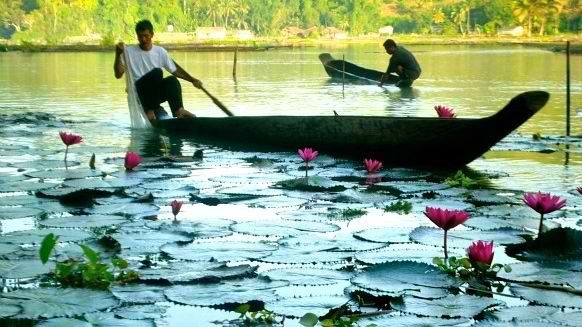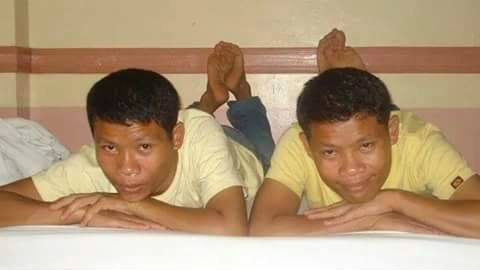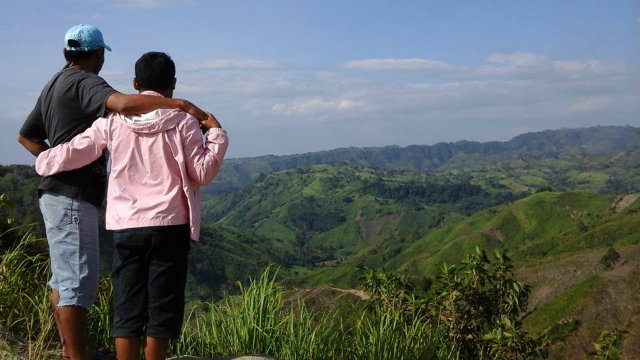SUMMARY
This is AI generated summarization, which may have errors. For context, always refer to the full article.

MANILA, Philippines — “Boyos, boyos, boyos!”
The 5-year-old boy came home running, leaping past greens and streams of clear water. “Boyos, boyos, boyos” echoed at school, with children changing the tune to “bakla, bakla, bakla” every few seconds.
Kids love to tease, their words were fast and crushing like the waterfalls that surround them. Rushing past tilapias glistening over Lake Sebu, the boy tugged his mother and asked what his classmates meant.
Boyos is a Tboli term for someone who has both female and male sex organs. But the boy only had one, he checked. The term, he learned, was adapted in his community not only to refer to hermaphrodites but also to gay men.
He is gay and he is loved, he felt it from his family. His community, however, was less accepting. The Tboli are among the indigenous peoples (IPs) of South Cotabato in Mindanao. They are known for their deep respect for nature, as well as for their rich art and culture.
There are no gays in their people’s history, the boy learned from his elders. Could I be the first ever gay Tboli, he wondered. I’m probably not the first nor the last, he guessed.
‘Bakla, bakla, bakla’

The boy has an identical twin. They share everything, even crushes. “Elementary, alam na naming bakla kaming dalawa, (we knew we were both gay),” Jilbert Kabadil said.
The twins were the youngest of 9 children.
In high school, Kabadil fell in love with a boy from a neighboring school. “I was shocked, he brought me snacks,” he recalled. His first love was also his first heartbreak. His twin shared his pain.
“Actually in our culture, parang ayaw nila magkaroon ng Tboli na gay (it seems they didn’t want to have a gay Tboli),” Kabadil said. His childhood was mottled with half-baked tolerance, invisibility, and unanswered questions on sexuality.
The farmer’s son soon left the fields for the city.
He walked through the halls of Mindanao State University, clutching his desire to become a doctor. This dream, however, was too expensive. He switched to a course in political science.
Soon after, Kabadil fell in love a second time. They met at a dorm. The relationship, however, only lasted a year. Throughout college, he supported himself. He rose at dawn to clean offices before heading to class; after school, he cleaned houses. His clients were mostly professors. Such tasks were nothing new for Kabadil, whose hands have toiled since they were small.
At night, he studied as his muscles ached. He simply had no time for love.
After graduation, Kabadil taught social studies in high school, while also serving as an HIV/AIDS peer educator. He became part of SHINE Mindanao, a network of lesbian, gay, bisexual, transgender (LGBT) organizations focusing on health programs. He also leads Blotik Sebu, an LGBT organization in Koronadal City.
The boy has come a long way. Jeers, however, trailed him. During a trip home, Kabadil heard “bakla, bakla, bakla,” and the noise brought him back to his childhood.
“Bakla, bakla, bakla,” the yelling continued, it came from a habal-habal driver. Infuriated, Kabadil faced the driver and asked, “Ano maipagyayabang mo sa akin? (What can you boast of?)”
There was silence.
“Kuya, you don’t need to inform us we’re gay, we already know that,” Kabadil quipped.
Layers

“Tao rin kami, ano pagkakaiba namin sa inyo (We’re also human, what’s the difference between us)?” Kabadil often asked his class.
He is a teacher, he is a Tboli, he is gay. He is proud of all 3; at the same time, he does not limit himself to these traits. He wants his students to feel the same about themselves.
Kabadil experienced different layers of discrimination throughout his life – for his roots, his history, his sexuality, his looks, it could be anything. Each time, he shrugs it off and only fights back through education.
“You should go to school, because that’s one great weapon to eliminate discrimination,” he believes.
The Philippines is home to over 14 to 17 million IPs, according to the UN. Although their rights are equally protected under national laws, many of them miss out on opportunities for “mainstream economic activities or political participation,” the International Work Group for Indigenous Affairs (IWGIA) reported. Mostly because they are found in “geographically isolated areas,” which are often unreached by social services.
IPs also play a crucial role in protecting the country’s natural resources, but often fall victim to “development aggression” and environmental degradation, the IWGIA added.
It is sad, Kabadil stressed, that some Filipinos continue to look down on IPs. He wants Filipinos to understand that the Tboli are just like any other citizen. Some are teachers like him, some are dream weavers, some are engineers, their dreams and vocations vary.
The Anti-Discrimination Bill aims to free Filipinos from any form of discrimination. Unfortunately, it has been pending in Congress for years with opposition mostly coming from religious groups against homosexuality, forgetting that the bill not only protects the LGBT community, but also the IPs, the elderly, persons with disabilities, and women.
In recent years, Kabadil observed that his community has become more accepting of LGBTs. He hopes to educate them more about diversity in sexuality, while maintaining respect for their culture.
Lake Sebu has no record of hate crimes “but we should not wait for it,” said Kabadil, “We need laws that protect us even before that happens.”
The young educator supports the anti-discrimination bill, but emphasizes the need to localize policies since each community has different problems. For example, most Filipinos learn about LGBT issues from the media; most families in his community, however, do not own televisions. Hence the need to intensify awareness efforts through other means.
He added that many communities are yet to break myths about sexual and reproductive health, some still believe that using condoms is bad.
Now 28, Kabadil hopes no more boys and girls in Lake Sebu would have to feel bad for braving the tide. – Rappler.com
Got stories to tell? Share your ideas and stories on gender and development with move.ph@rappler.com. Speak up on #GenderIssues!
Add a comment
How does this make you feel?
There are no comments yet. Add your comment to start the conversation.